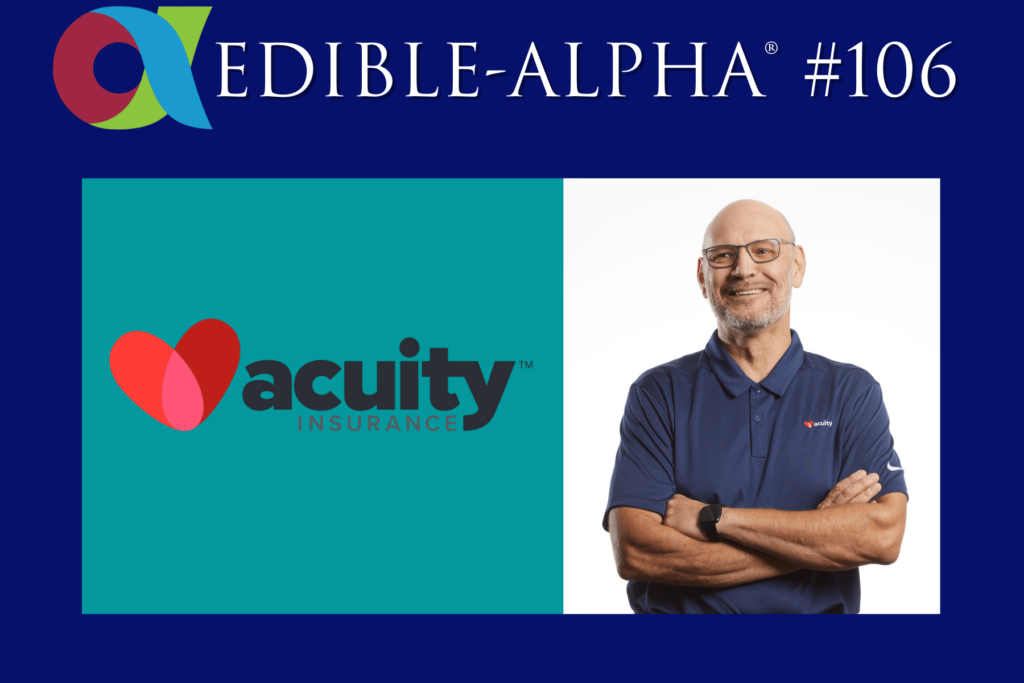Subscribe: Apple Podcasts | Spotify | Amazon Music | iHeartRadio | RSS | More
In Edible-Alpha® podcast #106, Brad speaks with Michael Schlagenhaufer, manufacturing consultant at FFI partner Acuity Insurance, which provides property and casualty insurance to businesses. The two dig deep into risk management and why it’s so critical for food or beverage manufacturers.
Uniquely, Acuity offers consultant services to all insurance customers at no additional cost. As the resident manufacturing expert, Michael helps producers large and small optimize their operations and curtail risks to their business, property, bottom line, and brand reputation. Whether related to natural disasters, food safety, product recalls, or cybercrime, he ensures that they’ve assessed their risks correctly and have sufficient mitigation in place. And while he doesn’t tell them which insurance packages to buy, he flags key issues and helps them understand the coverage they need.
When working with a new client, Michael starts by asking lots of questions, including which risks it has identified and whether it’s possible to engineer those out. After visiting the facility and learning more about the business, he’ll often point out several additional risks the client hasn’t thought of. Next, Michael will ask how a manufacturer plans to address identified risks, and what are its recovery plans should a risk become reality.
For example, has the company done everything possible to protect against natural disasters, such as building a tornado shelter, installing sprinklers, or ensuring the roof can withstand a windstorm? What are the communication and evacuation plans should such a disaster occur? And if the event causes physical damage or otherwise halts business, how will the company rebuild, when will it resume manufacturing, and does its business interruption plan cover all the bases?
Michael also helps clients maximize operations. He’ll discuss various manufacturing methods and technologies, such as an ERP system or new robot for the production floor, and make recommendations. He’ll even sit in as clients talk with vendors to ensure they’re asking the right questions and getting the products and services they need.
Although it’s generally true that the larger the manufacturer, the greater the risks, that doesn’t mean small and midsize manufacturers should take risk management lightly. It becomes even more important as brands scale and expand distribution. Michael cites cybersecurity as an example. Many large distributors and retailers require integration with vendors’ ERP systems, which exponentially increases small brands’ vulnerability to cybercrime, as well as the potential ramifications of a cyberattack.
Michael and Brad also discuss the importance of quality control and supplier verification. By locking in processes and certifications around each, small manufacturers can preserve their integrity and preempt product recall issues. It’s all about taking proactive measures to head off future problems. Plus, when small brands have solid risk management practices and business continuity plans in place, they become more attractive to big distribution players. And as blockchain expands and full traceability becomes the norm, small manufacturers will definitely need to dial this stuff in.
While risk management may seem complex, Michael stresses that no manufacturer needs to navigate it alone. There are plenty of resources that can help, including consultants like him, independent experts, trade associations, and institutions such as FFI.

